Merge Duplicates
When you have many different team members putting new data into your Pipedrive account, you’re bound to overlap your information and create duplicates. Since not everyone can fully know what every other team member is working on, it’s an inevitability of doing business.
Those duplicates can quickly spiral out of control, and all that data can make it hard to do business effectively – the wrong contact will get added, or two salespeople will reach out to the same customer.
A clean database is an effective database, and one of the best ways to keep a clean Pipedrive database is by using the Merge Duplicates feature.

Accessing the Merge Duplicates feature
The Merge Duplicates feature can be accessed in a few ways.
The first way is by going to “Tools and apps” > Merge Duplicates to see the list of possible duplicate people and organizations.
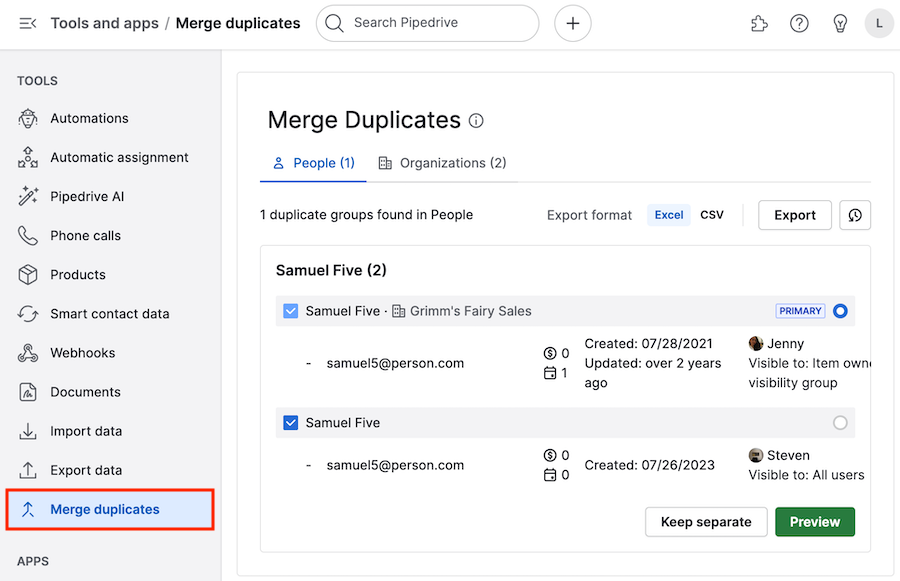
Once accessed, the Merge Duplicates feature will provide a list of potential duplicate people and organizations within your Pipedrive account.
You may also access the Merge Duplicates menu through the detail view of any person or organization contact flagged as a potential duplicate item.
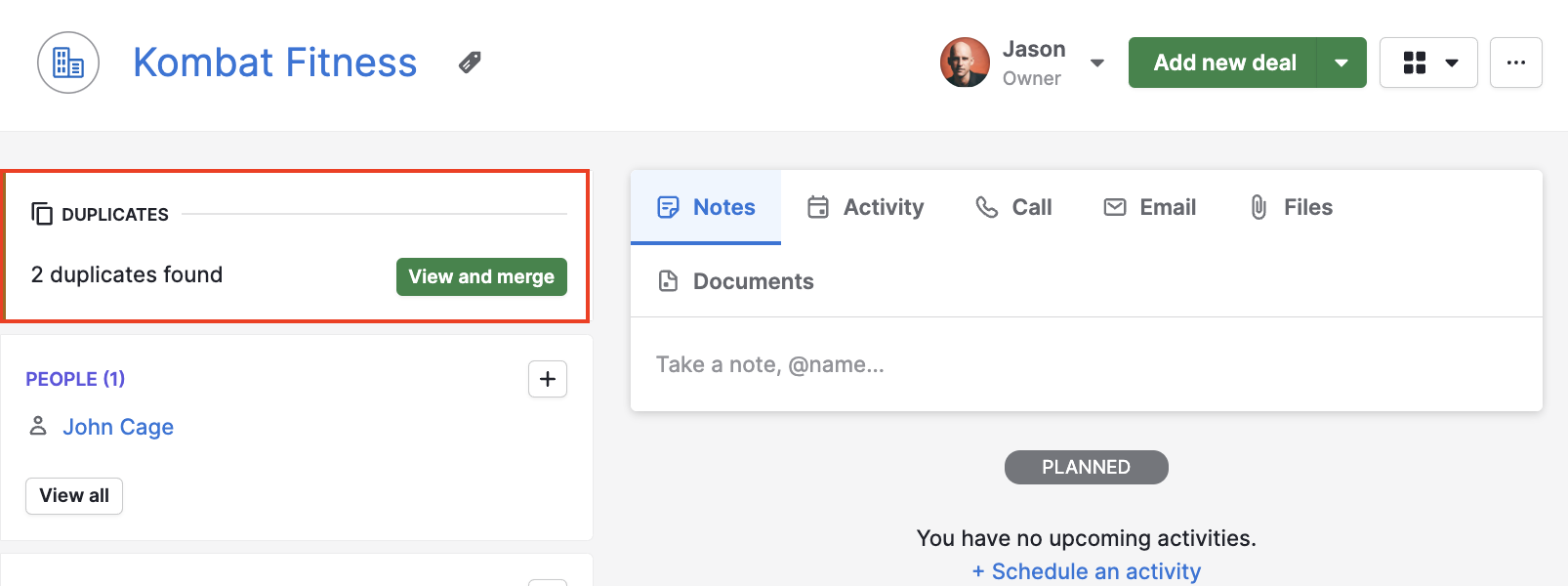
The details of these people and organizations – their names, deals, activities, creation date, owner and visibility setting – will be displayed as well. This information is invaluable when helping you decide whether the item is a duplicate and, if so, what information to prioritize when merging items together.
Merging duplicates
When you’ve decided the duplicate items listed here need to be merged, select which item you wish to be the primary. The primary item’s information will be prioritized in merging, in the event of any conflicting information.
For example, if two Tom Smiths have different phone numbers and are being merged together, the phone number associated with the primary Tom Smith will be saved once the merge has been completed.
Once you’ve chosen your Primary, click the “Preview” button to continue.
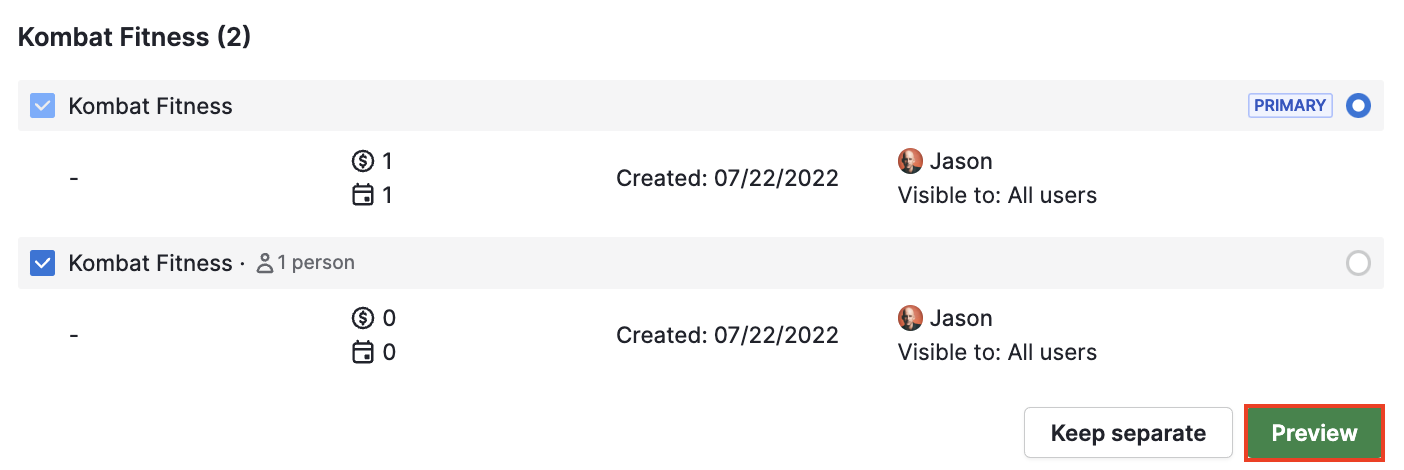
Previewing this information will give you a glimpse of how that contact will appear once it has been merged. This is the last stage before fully merging the items, and it is good to keep your eyes open for any incorrect or inconsistent information.
If you find any information you want to correct in the previous step, click the “Back” button to change the priority of the information before continuing.

Merging items that are not duplicates
Pipedrive has a manual merging feature in case you come across items that were not identified as duplicates. This feature can be used to merge deals, people and organizations.
On the detail view of a deal, person, or organization, click on “More (...)” and select “Merge.”
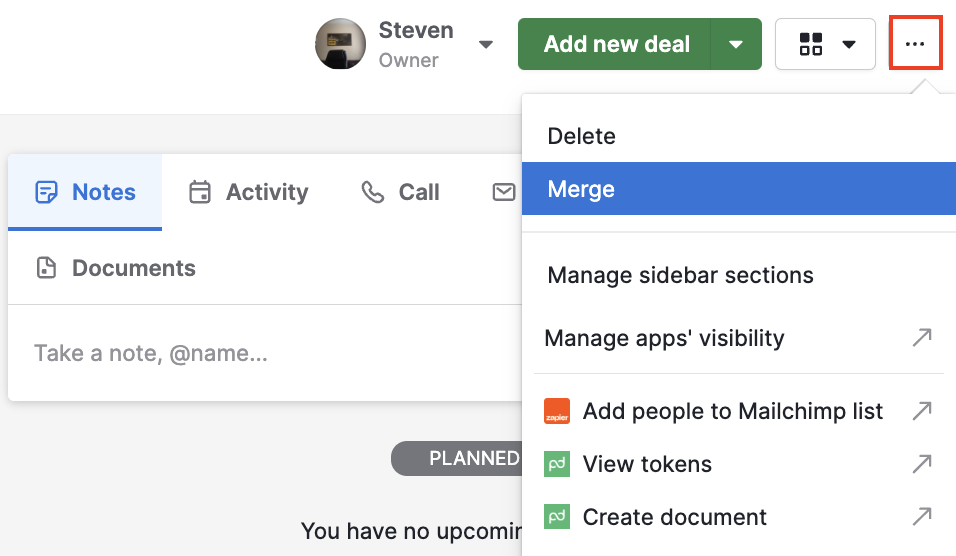
The merge menu will be opened. Enter the deal or contact name that you want to merge in the search bar at the top right corner, and once you select the deal or contact to merge, you’ll see the information of both items displayed.
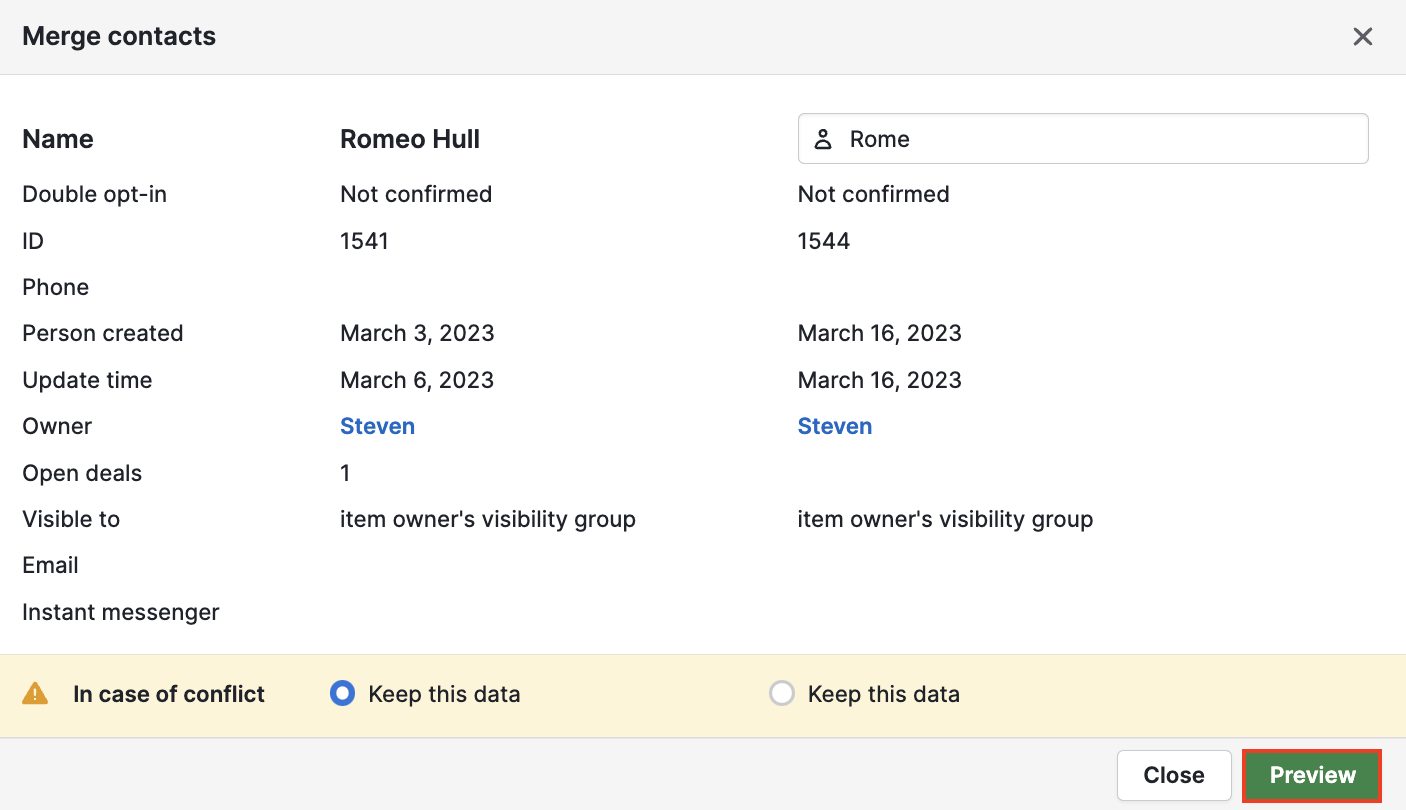
Choose which information to keep in case of conflict on the banner at the bottom. Click on “Preview” and, if everything looks correct, proceed to “Merge.”
Was this article helpful?
Yes
No